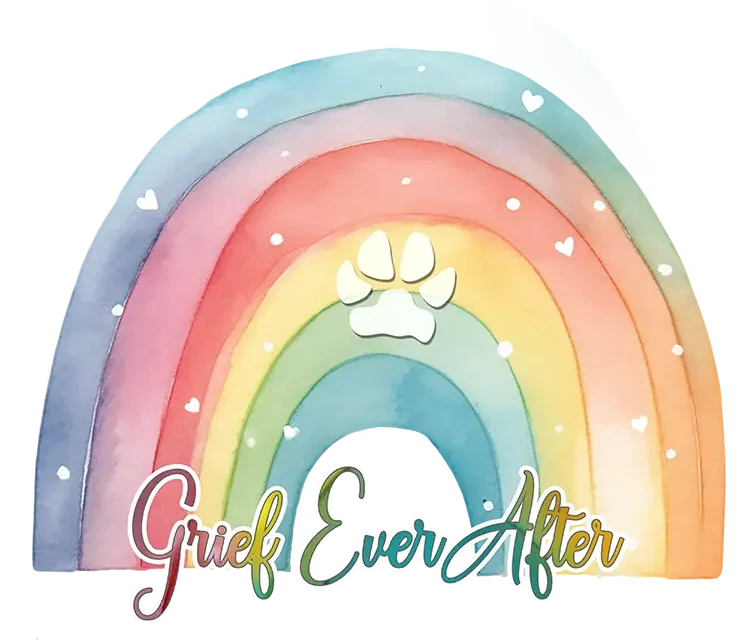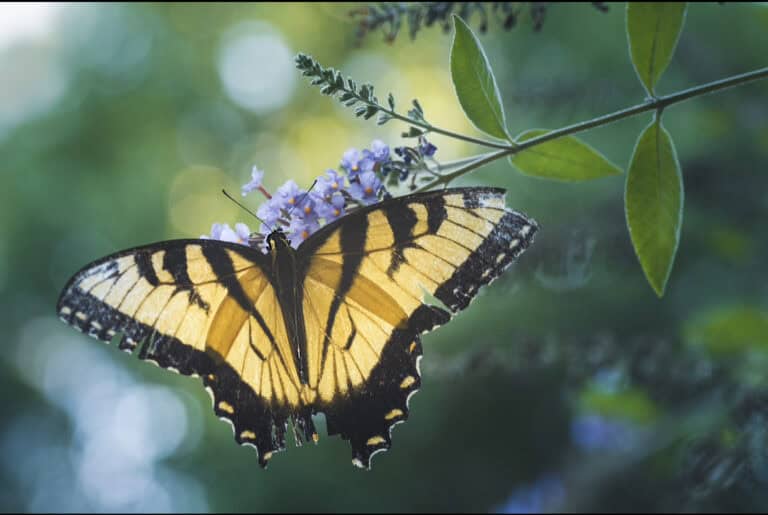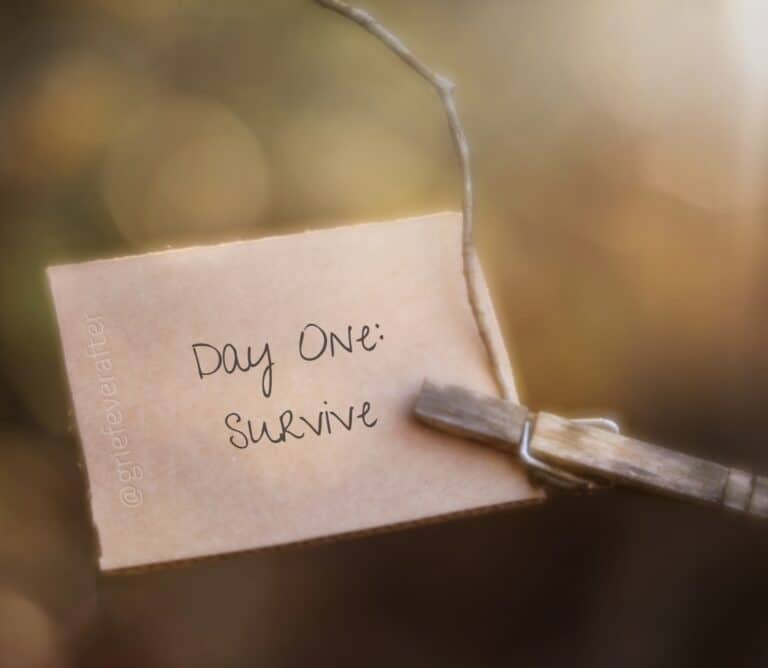7 Relatable Stages of Pet Loss
Looking at pet loss grief through the lens of the five “well-known” stages (denial, anger, bargaining, depression, acceptance) really oversimplifies the journey. It could almost sound like a stages of pet loss infomercial…“You too can be through grief in just five short stages!!”
But the truth is, grief, especially after losing your pet, doesn’t follow a neat checklist. There are no true stages of pet loss. Just an overwhelm of emotion and humans doing their best.
Still, one of the most common questions grievers ask is, What can I expect? With no road map for grief, it’s natural to seek reference points or just an inkling of what’s coming. You need to know your grief is normal and you’re not going crazy.
So, let’s talk in phases instead. Phases you may encounter in your grief after losing a pet. Might they all blend into one big vortex of feelings? Perhaps. Will they be different for everyone? Definitely. Does it completely suck? 100%.
These phases are just generalizations. While there are certainly some universal aspects to pet loss, the truth is, most of your grief will unfold in ways that are unique to you. It might help to take a few moments to write down the personal phases you’ve experienced so far. And maybe even what you imagine the future might hold.
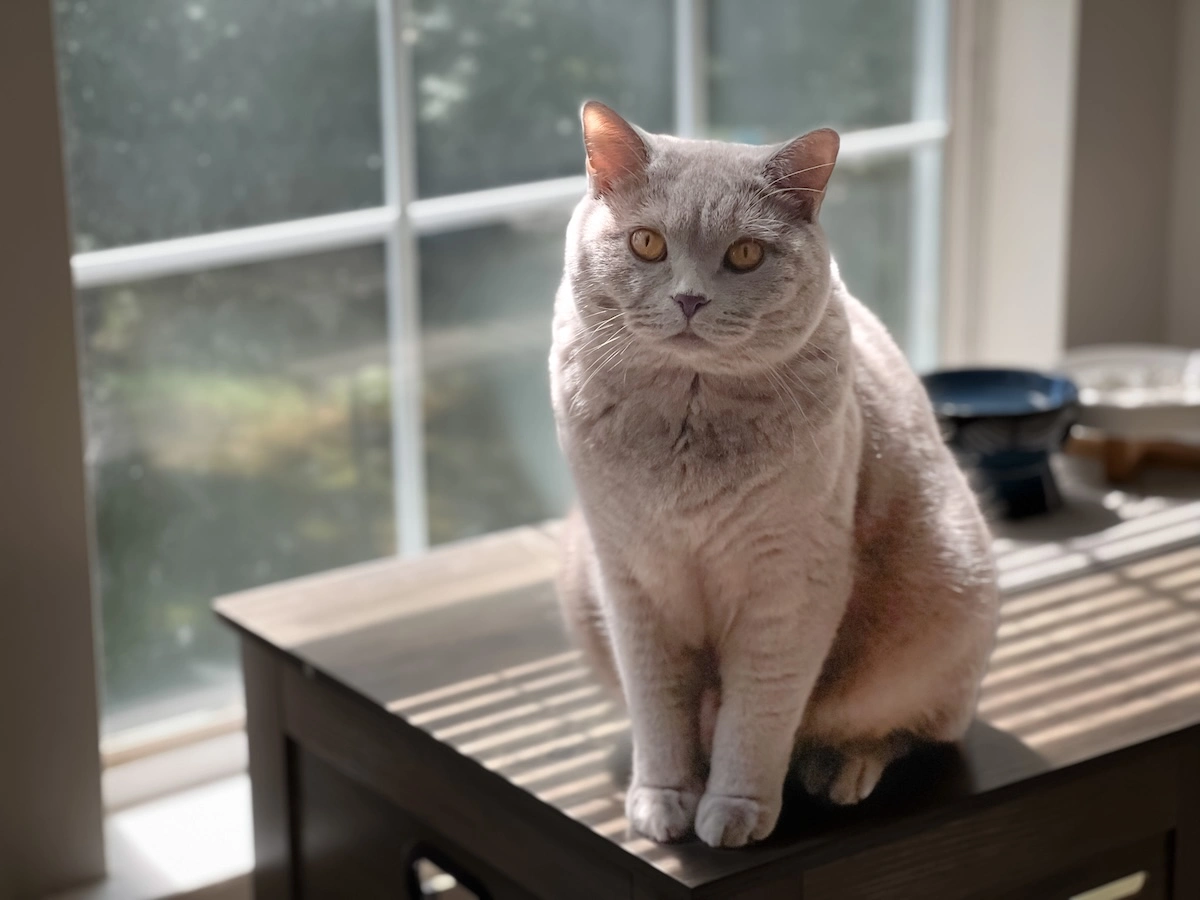
- Shock and Numbness
- Disorientation (Despair, Panic, Longing, Anxiety, Anger)
- Physical and Mental Survival
- Guilt and Rumination
- Revisiting All the Phases
- Hope for Hope
- Reinvesting in Life
Shock and Numbness
- Everything is simultaneously painful and numb, heartbreaking and surreal.
- Time is weird. A week feels like a lifetime yet everything seems like it just happened yesterday.
- The world has obligations, but nothing feels doable or even worth it.
- It’s like an out of body experience.
- Micro-losses are everywhere. Everything feels different.
- Showing up for anything, including yourself, is hard.
- Mundane life tasks are weird.
Disorientation (Despair, Panic, Longing, Anxiety, Anger)
- Intense despair and longing that’s hard to explain, so you might just keep it inside.
- Feels like being in quicksand – the more you try to fight, the more it has a hold on you.
- Overwhelming and huge emotions, happening all at once.
- A new understanding of what grief brain is.
- Anxiety about what your purpose will be now and what every single tomorrow will look like.
- Micro-losses are still everywhere.
- People stop checking in as much or as genuinely. They’re ready for you to be “back to normal”.
- Tears come with little to no control.
- You might realize how necessary support is and how it might need to come from people other than your usual circle.
- Time continues to be weird.
- This isn’t just a phase of grief. This is grief.
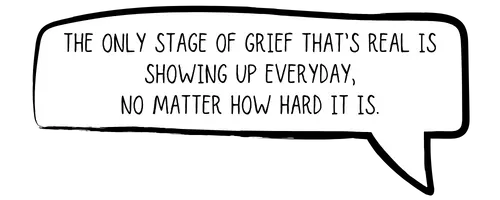
Physical and Mental Survival
- Getting through every day is hard; physically and mentally.
- Hygiene is a task, it’s not always a given.
- You might wonder if this is more than grief, maybe it’s depression.
- Auto-pilot helps you get back to work, school, and taking care of life (family, other pets).
- Obligations might be a distraction but sort of like how a nail in your foot would distract you from a migraine.
- Time away from distractions can feel heavy and even more lonely.
- You know you should care about your wellness (eat well and drink water) but that’s easier said than done.
- Movement is important but it’s incredibly hard to feel motivated.
Guilt and Rumination
- Replaying everything and anything.
- Trying to pinpoint where you could’ve made different decisions and changed everything.
- Wondering (on repeat) if you made the decision about euthanasia too soon. Or too late.
- Beating yourself up regularly for not knowing more, doing better, trying harder or anything that fits that bill.
- Ruminating on certain days, sounds, looks, moments, or words that are like velcro in the forefront of your mind.
- Feeling like you failed.
- Guilt for lighter days or joyful moments. Guilt for a smile or laugh or for not crying.
- It’s a guilt party, basically, and you’re the host, the guest, and the one cleaning up after.
Revisiting All the Phases
- You might think you’re stuck, going backwards, or will never feel any different. Grief is not orderly, neat, or tidy, so cycling through these phases is normal.
- It’s hard to grieve purely, without a cloak of things like regret and anger.
- It becomes more evident than ever that grief is unpredictable and can be brutal.
- Sadness is always running in the background.
- Grief burnout is real and it can be exhausting. It’s not just emotional, it’s physical, mental, and spiritual.
- You might feel like you’re doing everything “right” and still feel completely drained, like the needle on your grief isn’t moving.
- Existential questions arise like Will I ever be happy again? I thought I stopped feeling anger or guilt, why is it back? Do I even deserve or want to be happy again?
Hope for Hope
- Daily life being rearranged becomes more familiar
- The silence is a little less deafening. Likely because you’ve honed some reliable coping skills.
- You carry the long-lasting sadness, but there’s also a growing desire to experience happiness again someday.
- Grief is and has been a learning experience, maybe highlighting strength you didn’t know you had or the (now glaring) realization that everything is impermanent.
- You may have thoughts of loving again and opening your heart.
- Signs from your pet may come in ways that now feel familiar and true and full of love.
- Time does not heal all (as people often say) but time does have a way of proving that death can not take love and healing doesn’t mean forgetting.
Reinvesting in Life
- Smiling and laughing become easier and more guilt-free.
- There’s a new appreciation for the small joys of life.
- You find a comforting familiarity in a version of you you’re starting to recognize.
- There’s hope in rediscovering purpose even if it looks different than before.
- You notice how your pet’s love continues to guide your choices and your heart.
- You begin to see that life doesn’t return to “normal”, instead it reshapes around your love and loss.
- Being open to new experiences and connections, on your own timeline, starts to feel ok.
- You have a deeper empathy for others who grieve.
- You may have found the people in your life who are a true support.
- There can be peace in the space where grieving and living coexist.
Grief doesn’t follow a script. These phases are just relatable touchpoints that might help you feel less alone in the chaos and in the healing. However grief moves for you, it’s normal. There’s no right or wrong way to miss someone you love. Every one of your personal phases is a reflection of just how much your pet has been an extension of you and always will be.
